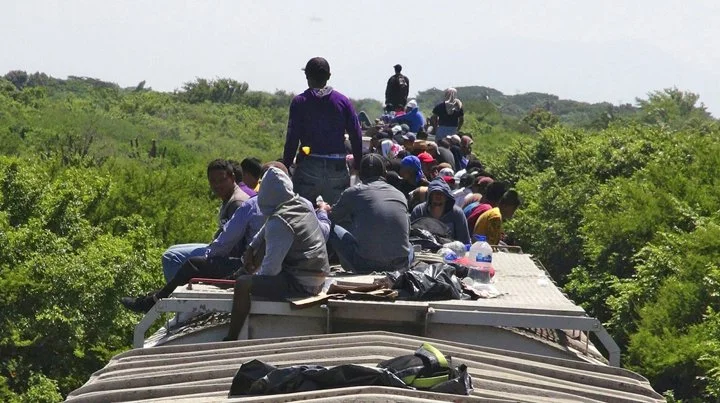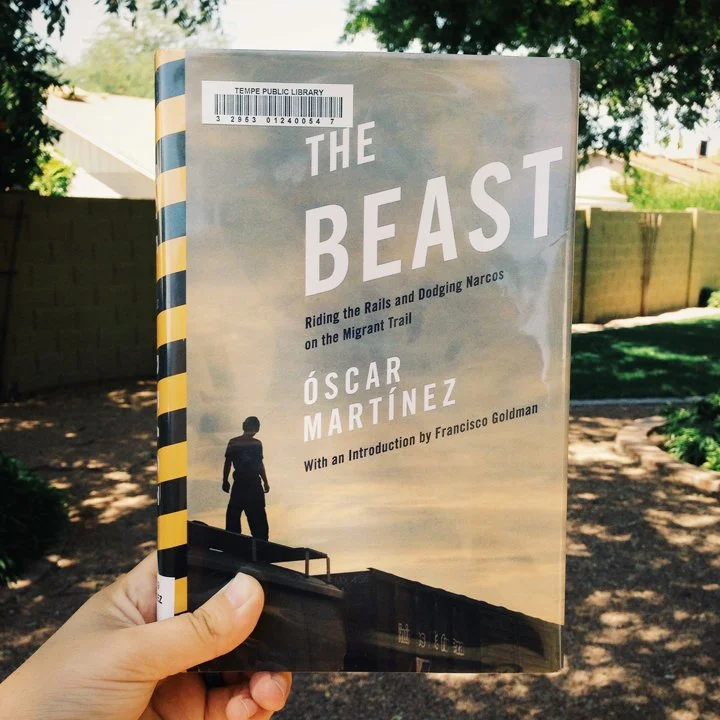The Beast
If you’ve been following the news about the humanitarian crisis involving unaccompanied minors from El Salvador, Honduras, and Guatemala—the countries that comprise the so-called “Northern Triangle” of Central America—you’ve undoubtedly seen references to “The Beast.”
This is, of course, what migrants call the series of freight trains that begin near the border between Mexico and Guatemala and head north towards the United States. Migrants risk life and limb to jump aboard these trains as they accelerate after picking up or dropping off cargo. And if the migrants are lucky—that is, if they don’t fall off, get shoved off, or otherwise get assaulted—they ride on the roof for hours, before connecting to the next train on the long journey north.
The Beast is also the title of a book by the young, award-winning Salvadoran journalist Óscar Martínez. The book is riveting and raw, and at times it left me rattled. But for those who sense that the epithets employed by talking heads on cable news may not do justice to the human weight of the story, I highly recommend it.
It’s one thing to pontificate from a safe distance; it’s another to experience the harrowing journey aboard The Beast for yourself. And that’s exactly what Martínez did. After having a conversation with a priest who describes the migrant corridor through Mexico as “a cemetery for the nameless,” Martínez sets out to discover those names and to share their stories—you know, the kind of thing a good journalist does.
Beginning in southern Mexico and continuing all the way to various spots along the United States border, he introduces us to specific Central Americans and tells us about their lives. He accompanies them for portions of their journey, riding the train, braving the elements, sleeping in migrant shelters, dealing with coyotes, dodging narcos, always asking questions. The result is a remarkably up close look at the perils of the migrant journey. As Martínez writes,
On top of a train there aren’t journalists and migrants, there are only people hanging on. There is nothing but speed, wind, and sometimes a hoarse conversation. The roof of the cars is the floor for all, and those who fall, fall the same way. Staying on is all that matters.
I’m sure those who are reading this have a variety of views on what should be done about the nearly 60,000 unaccompanied minors from Central America who have arrived in the United States since last October. That’s understandable. After all, the causes of the crisis are complex and easy fixes will inevitably fall short. Regardless of your stance, though, I’d encourage you to learn the names and stories of at least some of the people behind the statistics. If you don’t know how to do that for yourself where you live, let Óscar Martínez introduce you to Auner, Pitbull, and El Chele. To Paola, Saúl, and Keny. To Wilber, Epifanio, and Erika—and to a number of others.
Those we meet in the pages of The Beast are not all heroes, that’s for sure, nor are they all victims. But the men, women, and children we meet are all actual human beings, and when it comes to humanitarian crises, human beings beat caricatures any day of the week.

